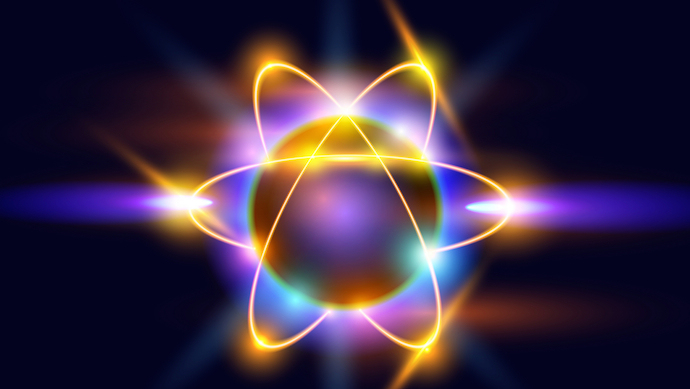
Wikimedia Commons
Keith Ward, Why There Almost Certainly Is a God: Doubting Dawkins (Oxford: Lion, 2008), 14-15:
To most philosophers, materialism has looked like a non-starter: Most of us do not want to deny that material things exist. But we are no longer very sure of what ‘matter’ is. Is it quarks, or superstrings, or dark energy, or the result of quantum fluctuations in a vacuum? It is certainly not, as the ancient Greek materialist Democritus thought, lumps of hard solid stuff — indivisible atoms — bumping into one another and forming complicated conglomerations that we call people. Some physicists, such as John Gribbin and Paul Davies, in their book The Matter Myth, argue that matter is a sort of illusion or appearance produced by some mysterious and unknown substratum in interaction with the human mind.
Quantum physicists such as Bernard d’Espagnat talk about a ‘veiled reality’ that we can hardly even imagine, which appears as solid physical objects only when observed. And when quantum physicists talk about ‘imaginary time’ as being more real than ‘real time’, about the cosmos being a ten- or eleven-dimensional curved space-time, or collection of space-times, and about electrons being probability-waves in Hilbert space, we may well wonder whether matter is a solid foundation for reality after all, or whether we really know what it is.
There is something out there, and it appears to us as a world of fairly solid objects. But modern physics suggests that the nature of reality is very different from what we see, and that it is possibly unimaginable. Roger Penrose, the Oxford mathematician, even thinks that the laws of physics may need to be radically revised, so that they take account of the important role of consciousness in the nature of the world.
What is the point of being a materialist when we are not sure exactly what matter is? It no longer seems to be a set of simple elementary particles. Instead, we have a ‘particle zoo’ of flickering, insubstantial, virtual wave-particles, most of which (like the elements of dark matter) are probably not detectible by us at all. And it no longer seems that just a few simple laws will account for their behaviour. Instead, we have a very complex mathematics of Hamiltonians, differential equations, and Hilbert spaces, which may be elegant and beautiful, but is far from being simple (in the sense of being easy to state and reducible to just one or two basic rules).
What this means is that materialism no longer has the advantage of giving us a simple explanation of reality. Explanations in physics get more and more complicated and counter-intuitive every year. Any plausible form of materialism will be exceedingly complex and mysterious. It no longer has the alleged benefit of being the simplest explanation of the world.
***
“Materialism isn’t what it used to be”












